Connecticut residents who want to start a career in the healthcare industry without spending years in post-secondary education are invited to read our collection of top EKG training schools in their state.
According to the United States Bureau of Labor Statistics, the median annual wage reported by cardiovascular technologists and technicians in Connecticut was $81,640 as of May 2022.
Salaries for workers in this profession vary depending on location, education, and a variety of other factors.
If you want to start a rewarding career in healthcare, attending an EKG Technician training program may be the first step.
Most EKG Technician training programs prepare students to complete tasks such as:
- Evaluating a patient and explaining the procedures
- Verifying patients identity
- Performing EKGs
- Performing point-of-care testing
- Preparing test results for the doctor
Most programs take only a few months to complete and prepare you for entry-level employment in this industry.
We invite you to continue with your research and decide what program best meets your needs after reading our list.
1CT State Community College
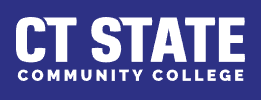
About the School
CT State Community College offers a non-credit program that prepares students for a career as an EKG Technician.
The program takes less than six months to complete.
Courses are available at Asnuntuck, Capital, and Three Rivers locations.
The curriculum is delivered on the ground and in a hybrid format.
Courses Offered
EKG Technician students learn how to:
- Discuss the basic electrophysiologic principles of cardiac conduction to the anatomy and physiology of the body
- Identify proper placement of leads
- Analyze a variety of EKG rhythm strips
- Demonstrate the technical aspects of the EKG machine
- Describe diagnostic electrocardiography in terms of goals, types, procedures, indications, and contraindications
- Explain how to interpret a 12-lead EKG strip
Applicants must meet the following requirements:
- Be at least 18 years of age
- Be able to lift 50 pounds or more
- A GED or high school diploma is not required for admission to the program but students must have one of these to take the NHA exam
Contact Information
- Address: 170 Elm Street, Enfield, CT 06082
- Phone: 860-253-3012
- Website: https://ctstate.edu
2American Society of Electrocardiogram Technicians

About the School
The American Society of Electrocardiogram Technicians provides the most cost-effective, user-friendly certification experience available.
The members get high-qualified national certification, and competency-based programs designed to be completed at their own pace.
Courses Offered
An EKG Certification program is available at the school.
The program includes 40-48 class hours and 20-40 clinical hours.
Classes typically enroll between 10-30 students.
Students need:
- High school diploma or GED
- Be over the age of 18
- Have a clean background check
- Negative Hepatitis tes
- Negative TB test
- Immunization records
Graduates receive a Certificate of Completion.
Students learn how to complete tasks such as:
- Evaluating a patient and explaining procedures
- Verifying patients identity
- Performing EKG
- Performing point-of-care testing
- Preparing test results for the doctor
- Maintaining the work area and equipment.
Contact Information
- Address: 1717 Pennsylvania Avenue Suite 1025, Washington D.C. 20006
- Phone: (888) 797-9354
- Website: https://ekgcert.org
3Excel Academy
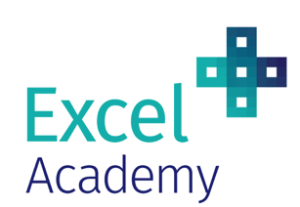
About the School
Excel Academy offers EKG Technician Training in North Haven, Connecticut.
The academy provides comprehensive training for individuals who want to become skilled EKG technicians.
The program teaches the necessary skills and knowledge to excel in this important healthcare profession.
Students learn how to interpret and analyze EKG readings with precision, enabling them to contribute to the accurate assessment of cardiac health and assist medical professionals in providing quality patient care.
The program also helps students master the techniques of correct electrode placement to obtain accurate and reliable readings.
Excel Academy is approved by the Connecticut Office of Higher Education and the Connecticut Department of Public Health.
Contact Information
- Address: 0 Bell Street 5th Floor, Stamford, CT 06901
- Phone: 203-691-7989
- Website: https://www.excelacademyct.com
4Northeast Medical Institute
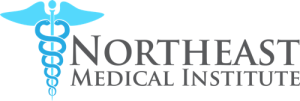
About the School
EKG courses and workshops for those interested in EKG Technician positions are also available at Northeast Medical Institute.
Northeast Medical Institute offers an EKG technician training program that consists of 14 hours of classroom and skills training.
Students learn basic theoretical components approved by the state of Connecticut.
The institute prepares students for the Final Exam with the National Healthcareer Association.
Courses Offered
EKG Technician trainees learn how to:
- Set up an EKG Machine and stress tests
- Prepare patient files for physicians
- Schedule appointments as needed
- Identify basic EKG rhythms
Tuition for this course is $250 and does not include enrollment fees and supplies.
The course can be completed in three days and includes 24 hours of training.
Daytime students attend classes Monday to Wednesday or Wednesday to Friday from 8 a.m. to 5 p.m.
Evening students attend classes for five days Monday to Friday from 5 p.m. to 10 p.m.
Contact Information
- Address: 135 Bedford Street, 2nd Floor, Stamford, CT 06901
- Phone: (203) 391-6766
- Website: https://northeastmedicalinstitute.com
5Academy of Medical Training Inc.

Academy of Medical Training Inc. offers courses in CNA Training, EKG Training, Phlebotomy Training, Patient Care Technician Training, and CPR training.
The EKG Technician program includes 16 hours of training and can be completed in two days.
The EKG Technician program consists of EKG Monitoring and Patient Care classes.
Courses Offered
Students learn skills such as:
- Identify artifacts from the tracing
- Record an EKG lead on a patient
- Verify the leads recorded on an EKG
- Upload a completed EKG to a patient’s electronic medical record
- Mount a completed EKG for a patient’s chart
- Measure a patient’s heart rhythm from the EKG tracing
- Verify EKG machine paper speed
- Verify EKG machine sensitivity
- Apply electrodes on patients
- Respond to signs and symptoms of cardiopulmonary compromise
- And more
The total cost for this program is $500 and includes tuition and registration fees.
Contact Information
- Address: 521 Wolcott Street, Waterbury, CT 06705
- Phone: (203) 721-7021
- Website: https://beacnact.com
6Northwestern Connecticut Community College
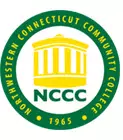
About the School
Northwestern Connecticut Community College offers a Certified EKG Technician program that prepares students for work as EKG techs and for the National Healthcareer Association nationally recognized Certified EKG Technician certification exam.
Courses Offered
The Certified EKG Technician curriculum covers courses such as:
- Introduction to Medical Terminology
- Diagnostic Procedures
- Introduction: EKG Technician
- Ethics, Compliance, and Communication
- Safety and Patient Care
- Patient Vital Signs
- Electronic Medical Records
- Patient Preparation and Positioning
- Lead Placement and Artifacts
- Heart Electrical Physiology
- And many more
During this program students learn skills and concepts such as:
- Cardiac anatomy and physiology
- Infection control and standard precautions
- Proper machine protocols and maintenance
- Electrocardiography interpretation of various types of EKGs
- Proper communication methods
- And more
This program costs $1,995.
Contact Information
- Address: Park Place East, Winsted, CT 06098
- Phone: 855.520.6806
- Website: https://careertraining.ed2go.com/ctnccc
7American Red Cross Connecticut Chapter

About the School
American Red Cross Connecticut Chapter offers CNA and Phlebotomy/EKG programs through its Occupational School.
The Phlebotomy/EKG program provides the skills that enable students to collect blood specimens for laboratory analysis to diagnose and monitor medical conditions.
The EKG portion of the class teaches the proper technique of setting up, reading, and performing an EKG on patients in a hospital or clinical setting.
The 82-hour program includes 72 hours of classroom education and 10 hours of clinical experience.
The first six weeks are held in the classroom while clinical work is held for two days following the classroom session at a location designated by the American Red Cross.
The course fee is $780 with a textbook included.
Evening classes take place from 5:30-9:30 p.m. Monday through Wednesday.
Morning classes take place from 9 a.m. to 3 p.m. Monday and Tuesday.
Contact Information
- Address: 209 Farmington Avenue, Farmington, CT 06032
- Phone: (877) 287-3327
- Website: https://www.ctredcross.org
8Dorsey College
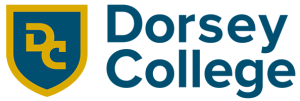
About the School
Dorsey College offers a variety of training programs through its Training Direct division.
Training Direct provides time-saving, career-focused training.
Courses Offered
The following programs are available at Dorsey College:
- Nurse Aide
- Medical Billing & Coding Specialist
- Electronic Medical Records
- Medical Billing & Coding Specialist/Electronic Medical Records
- Phlebotomy Technician
- Patient Care Technician
- EKG Technician
The entry-level training programs in Bridgeport and Danbury can help students learn new skills and put them on the right path to a new career.
Contact Information
- Address: 3885 Main Street, Bridgeport, CT 06606
- Phone: (203) 372-8842
- Website: https://www.dorsey.edu
9North Shore Community College

About the School
North Shore Community College offers an EKG Technician Certification Training program that prepares students for the National Workforce Career Association Certified Electrocardiograph Technician Exam, and the National Healthcareer Association Certified EKG Technician exam.
Students learn the anatomy and physiology of the heart, medical disease processes, medical terminology, medical ethics and legal aspects of patient contact, electrocardiography, and stress testing.
Courses Offered
Learners practice with EKG equipment and perform hands-on lab tasks such as:
- The function and proper use of the EKG machine
- The normal anatomy of the chest wall for proper lead placement
- 12-lead placement
- Other clinical practices
Before registration, the college recommends that students take the Accuplacer Placement Exam at the Center for Alternative Studies and Testing.
The program costs $999 and includes 50 hours of training.
North Shore Community College is an accredited public institute of higher education by the New England Commission of Higher Education.
Contact Information
- Address: 1 Ferncroft Road, Danvers, MA 01923
- Phone: 978-762-4000
- Website: https://www.northshore.edu
10AlliedRx Institute of Healthcare
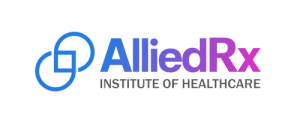
AlliedRx Institute of Healthcare offers interactive learning, board exam prep, patient simulations, and an on-demand virtual tutor.
The programs are designed to help students get started with a healthcare career.
Online and on-campus courses are available at the institute.
Among many other allied health programs, AlliedRx Institute of Healthcare offers a fully online EKG Technician program.
The course includes one-on-one mentorship.
Courses Offered
The EKG Technician curriculum includes courses on topics such as:
- Fundamentals of Electrocardiography
- EKG Interpretation and Analysis
- Patient Care and Electrode Placement
- Equipment Operation and Maintenance
The course includes:
- 12-month access to online learning content
- Virtual clinical simulations
- Interactive study guides and knowledge assessment
- 3D interactive anatomy simulations
- Virtual EKG patient readings
- Video demonstrations
- Board examination prep and materials
Tuition for this program is $1,350.
Contact Information
- Phone: (866) 348 – 6920
- Website: https://www.alliedrxtraining.com
Regional Salary in Connecticut
| Region | Employed | Avg. Annual Salary | Avg. Hourly Pay | Top 10% Annual Salary | Bottom 10% Annual Salary |
|---|---|---|---|---|---|
| Bridgeport-Stamford-Norwalk, CT | 110 | $83,060 | $39.93 | $106,970 | $45,860 |
| Hartford-West Hartford-East Hartford, CT | 160 | $80,470 | $38.69 | $103,430 | $48,490 |
| New Haven, CT | 100 | $83,080 | $39.94 | $103,320 | $47,490 |
| Waterbury, CT | ** | $77,080 | $37.06 | $104,060 | $37,900 |
* Employment conditions in your area may vary.
Final Thoughts
Now that you have read our list of the best EKG Technician schools available for Connecticut students the next step is to continue the research and apply for the program that best meets your needs.
This is an important step so take your time and make sure the program you choose fits your learning style and career aspirations.






